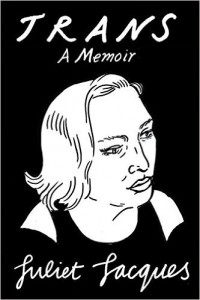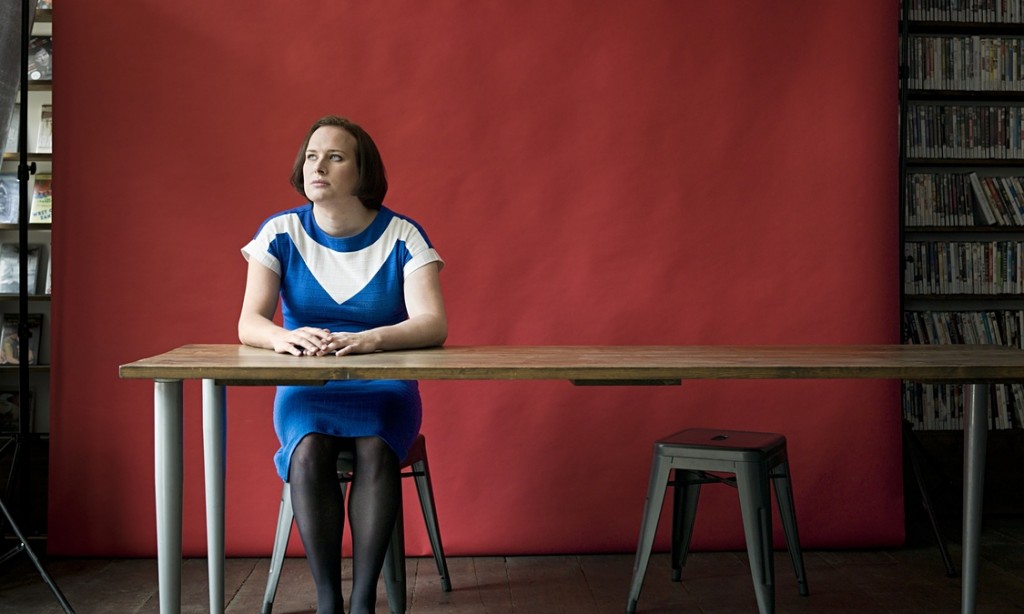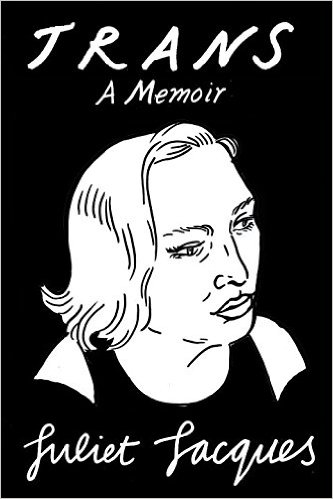 Trans: A Memoir
Trans: A Memoir
by Juliet Jacques
Verso. 320 pages, $26.95
JULIET JACQUES’S Trans: A Memoir begins where most transition stories do—on the eve of her sexual reassignment surgery, the supposed start of a new life and the denouement to a journey from male to female. “I suddenly feel very differently about my forthcoming operation,” Jacques reflects. “I’d previously seen transition as a marathon: surgery was like breaking the tape, but the race was won far earlier.” But Trans is not a conventional transition memoir in the end, as Jacques rejects the gender scripts that so often come to define the transgender experience. Trans broadens the growing genre of trans literature in its portrayal of medical and social transition as a means of achieving personal congruity rather than ostensible womanhood. This makes it an important contribution to transgender literature.
Part autobiography, part literature and film survey, Trans captures the uncertain years following Jacques’s departure from British university as she tries to break into journalism and settle into adulthood. She teeters on destitution as she pursues writing, indie music, and football (American soccer). Her slow and awkward path toward “Juliet” interacts with, and confuses, these efforts. In addition to processing her gender, she faces discrimination and the added costs of therapists’ fees, new clothing, and lost wages as she recovers from surgery.
Jacques struggles through queer and transgender theory to find herself processing the works of queer theorist Riki Ann Wilchins, “stone butch” novelist Leslie Feinberg, and transgender writer Kate Bornstein, among others, and tries on various labels, including “transgender,” finally settling on “transsexual” to describe herself. Particularly painful is her exploration of anti-trans sentiment among some feminists, brought to light by Kate Bornstein in Gender Outlaw (1995). Jacques reports that she hasn’t been surprised by the disparaging comments by some well-known “gender defenders,” who insist that transgender women are co-opting female identity. However, she hastens to add: “I was stunned to find that certain feminists hated people like me as much, if not more, than those on the right.”

What’s refreshing in this memoir is that Jacques at no point (other than for her safety) aims to prove or achieve “womanhood.” Rather, she sets her sights on personal comfort and an honest life. She continues to play football throughout the transition, intentionally challenging the gender stereotypes that would disallow her participation. Someone tells her along the way: “I like things to be black and white, but you’re just about the greyest person I’ve ever met.”
Jacques comes to embrace her past life in her assigned gender, combatting the prevailing tendency for transsexuals to erase their life history before transitioning. This is a potentially powerful message for gender-variant readers wading into medical and social transition, who may be encouraged to interrogate the limits of society’s standards in seeking their most authentic selves. One senses that Jacques intends to continue doing just that.
But as the the genre of transgender memoirs swells, so too does the need for these works to be judged not for their confessional but for their artistic qualities. Here Trans leaves something to be desired. The story is unnecessarily rushed, resulting in a timeline that’s often hard to follow. Characters and places are presented with little introduction and then quickly swept away. The story begs for more scenes instead of summary, for fleshed-out characters and detailed settings. This lack of landscape could be a result of the book’s origins as a newspaper series in The Guardian called “Transgender Journey,” which detailed her transition from 2010 to 2012. Many of the chapters and sections feel like separate parts compiled from disparate sources. That said, where Trans breaks new ground is in the complexity of its narrator and her willingness to take a brutally honest look at her motives and attitudes throughout the process.
Kate Sosin Oeser is an award-winning trans* journalist. She is an inaugural Trans 100 honoree and a former associate editor of Windy City Times.






